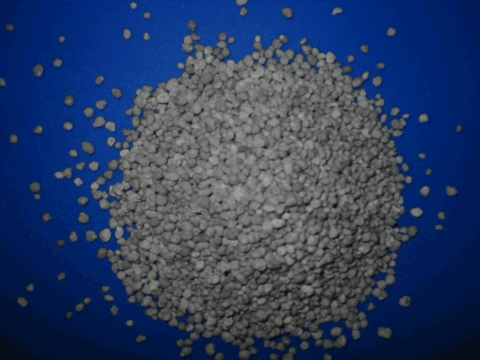Peak phosphate
30 May, 2009 06:12 pm
The peak in conventional oil and gas production is not the only peak in the supply of natural resources to be confronted in the near future. It seems likely that the peak in conventional phosphate production from phosphate rock may also be near. A recent study of Cordell and coworkers, which is in press (1), suggests that ?peak phosphate? may occur between 2030 and 2040. ?Peak phosphate? may cause a shock. This is all the more so because oil and gas can be replaced by other means of energy supply, but phosphate is without a substitute.
 |
A reduction in phosphate rock supply may also limit agricultural productivity. Whether it will do so, is dependent on our efforts to improve phosphate recycling (especially to keep added phosphate in economic circulation) and to exploit unconventional external sources of phosphate. The development of much improved recycling and new external sources of phosphate is an important matter, because in the absence thereof agricultural yields will plummet, as pointed out by Newman (2). Current yearly grain yields in industrialized countries are well over 5 tons per hectare. But in the absence of an external phosphate supply, yearly yields in de order of 1 ton of grain per hectare were common in advanced agriculture on good soils (2). So, it is likely that without compensating the decreasing input of phosphate from phosphate rock with alternative sources of phosphate, agricultural productivity would be reduced to below a level that will allow for adequately feeding the nine billion people which are expected around 2050.
The problems associated with ‘peak phosphate’ add to the emerging problems of climate change and constraints on water and land supply which threaten to substantially limit future agricultural production. For starters, it would seem urgent to transform current practices causing large phosphate losses to the environment into highly efficient phosphate recycling.
(1) D. Cordell, J. Drangert, S. White. The story of phosphorus: global food security and food for thought. Global Environmental Change (in press)
(2) E.I. Newman. Phosphorus balance of contrasting farming systems, past and present. Can food production be sustainable? Journal of Applied Ecology 1997; 34: 1334-1347.
-
12/12/12
“Peak Oil” is Nonsense… Because There’s Enough Gas to Last 250 Years.
-
05/09/12
Threat of Population Surge to "10 Billion" Espoused in London Theatre.
-
05/09/12
Current Commentary: Energy from Nuclear Fusion – Realities, Prospects and Fantasies?
-
04/05/12
The Oil Industry's Deceitful Promise of American Energy Independence
-
14/02/12
Shaky Foundations for Offshore Wind Farms







 Read more
Read more
It is interesting that f you apply a logistic function to population growth (in fact similar to the Hubbert "peak oil" approach), it peaks at 7.1 billion by 2024 (only marginally up from the 6.7 billion of us there are presently) and then declines inexorably to around 2.5 billion by the end of this century. We can only speculate as to the means by which this will occur, but I presume that the lack of resources - of energy and food - will be the prevailing agency.
It is almost impossible to think that wars over oil, food and water will not be a part of an uneasy scenario.